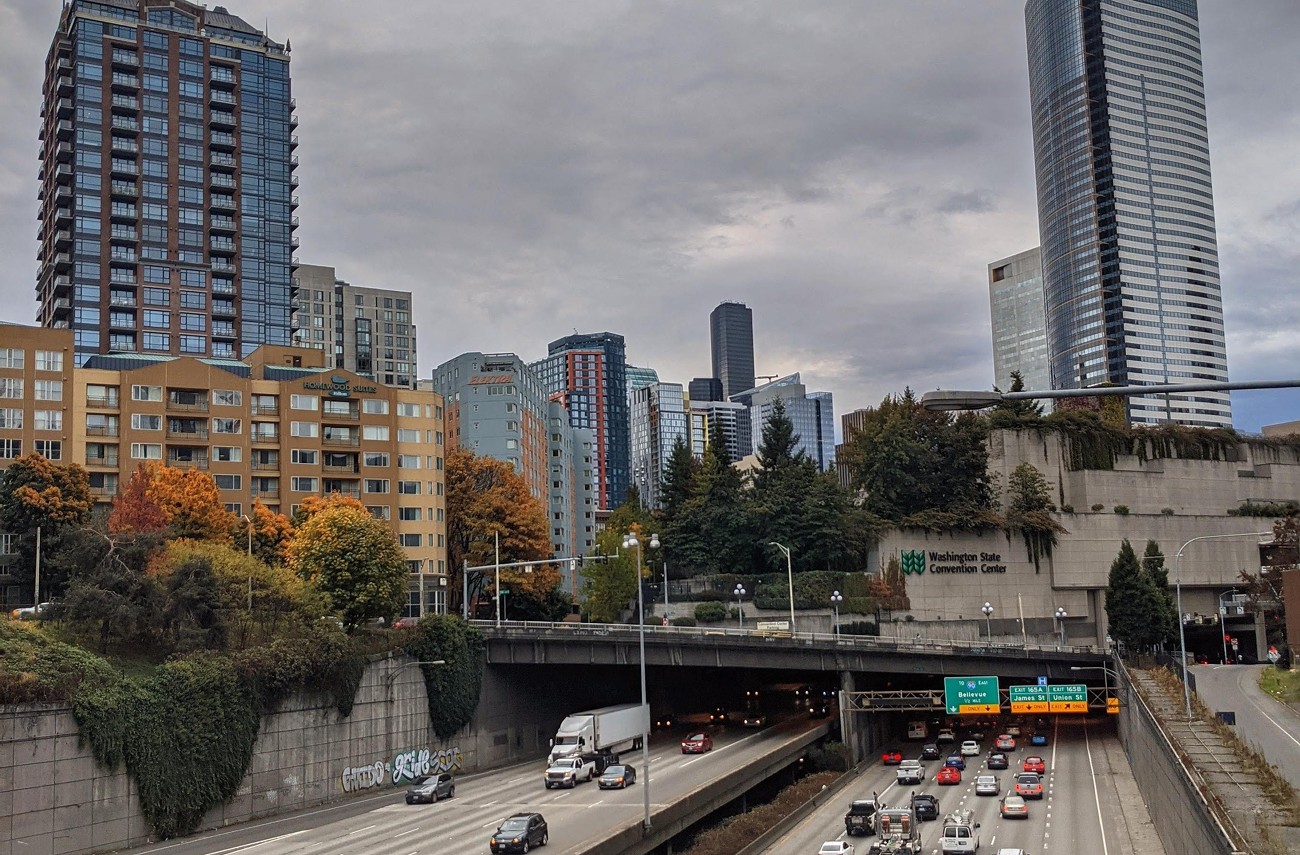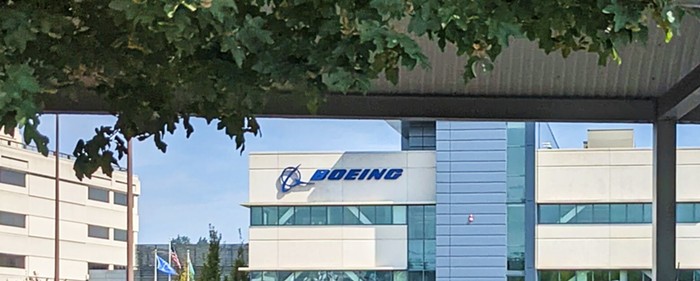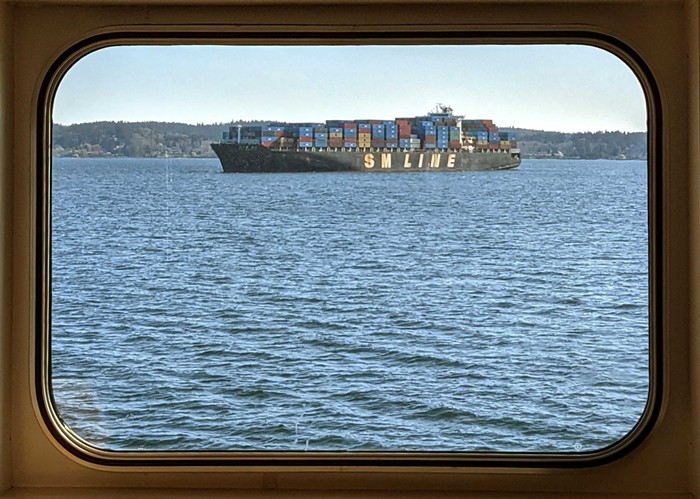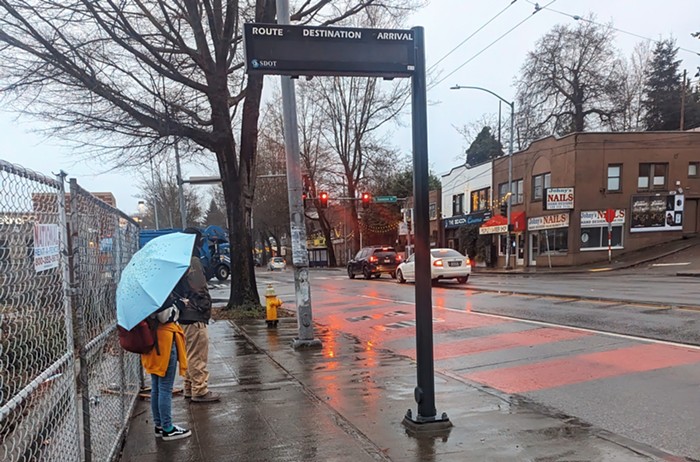I want to make this short. There is no need to make more noise about the matter than is necessary. And you will see why. To begin with, Seattle now has a new right and an old right. Council Member Bob Kettle presents us with an example of the former. Not only does he want more cops, he recently made it clear he wants to keep cars in Pike Place Market. As The Urbanist explained, Kettle wants to “exclude funding for the Pike Place Event Street" from "the next transportation levy." This would basically remove any change (in any direction—pro-car or anti-car) from the table. The result? What already exists (pro-car Pike Place Market) continues as is. Because there is no rational reason to permit cars into the pedestrian-dense street, a street filled with tourists, we must conclude that Kettle's pro-car action is no deeper than the kick one sees when a stimulus is applied to the leg of a dead frog.
Let's now turn to the Post Alley article, "Is Seattle Growing Too Fast, and Can We Do Anything About That?" It's by David Brewster, one of the most recognizable figures of Seattle's old right.
David Brewster (sorry, wrong link), who sees himself as the voice of reason (and reason not in the sense of common sense—that's Brandi Kruse's racket—but in the enlightened, civil spirit sense), is not the deep thinker he imagines himself to be and believes the public sees him as. One only has to read his most recent post to see the plainness of this fact. There is nothing in it guided by a concept (or theory—I prefer the former because it doesn't refer to eyesight). As a consequence, its reasoning is much like a pinball being bumped from one irritation to the next: Seattle is getting swamped by people from California; Seattle's metropolitan area is now, horror of horrors, "wall-to-wall urbanized"; Seattle needs to clear the clogs in its highways; Seattle needs to export its surplus population to the suburbs; and Ballard, poor old Ballard, no longer has enough sunlight because it's overcrowded.
This is the old right, for sure. And the older it gets, more to the right it moves.
Let's take a look this passage:
Seattle’s developer-driven politics has exploited our competitive advantage by making construction of housing and office towers comparatively easier. Seattle, for instance, has put up thousands of new residential units, so far with little effect on housing prices.
What the hell is "competitive advantage"? Is he drawing this expression, which conceptually means nothing, from economics? Is it like David Ricardo's "comparative advantage"? Or something like it? And if so, Brewster has yet to properly grasp (begreifen) the essence of the concept, which appeared not long after another concept he uses without knowing it, Malthusianism (this regards his population thinking). Both concepts ran out of gas long, long ago. For example, what comparative advantage did Japan have after its transition to a market-determined society? The South Korean economist Ha-Joon Chang has made this point again and again. Economic development along capitalist lines does not require, as its point of departure, a comparative advantage. Also, as the geographer Danny Dorling pointed out years ago: the problem is not population growth but a society's carbon footprint. Kenyans can add another 50 million to their population and still not come close to the amount of carbon that's liberated to maintain the socially engineered practices of Americans. So, what in the world is Brewster going on about?
To make matters worse, his lack of concept-thinking is accompanied by a complete lack of historical development structured by a market society. He claims that building houses under market conditions has "little effect on housing prices." But the historical record shows that affordable housing has never been provided by the market. Only the state can supply this public good. And it can do, so far, in only two ways: in the form of social housing or, in the case of the US, state-backed longterm loans (from this we get the suburbs). So, his conclusion of the housing crisis is nothing but a bucket with more holes than bucket.
And what about this:
There is, to be sure, a smarter way to deal with transit: more east-west bus lines in Seattle, automated shuttles, on-demand cars and vans in most neighborhoods, fixing highway choke points, congestion pricing for freeways and downtown. But that would mean taking on the Sound Transit political juggernaut, and the agency (with 77 positions in communications alone) is unlikely to budge.
Does Brewster even watch TV or something of the kind? Maybe the Sweet Sixteen games? What you will find all over are ads for SUVs and massive pickup trucks. It's wall-to-wall social engineering. It's there every day. To call Sound Transit a "political juggernaut" because it has "77 positions in communications" is nothing but stunning.
In 2022, Ford alone (meaning, not including other US, Japanese, Korean, Swedish automakers) spent nearly $1.5 billion on ads. You have never seen an ad for real-world (meaning, empirically proved benefits) public transportation during the Super Bowl. None. They do not even appear during Seahawks or Mariners games. All we get from Sound Transit in this sector (professional sports) are ads on the web promoting transit to the games. And yet Brewster somehow sees 77 people working in the social engineering department at Sound Transit as ultra-powerful. Seventy-seven. Less than a hundred. I wonder if Brewster can even count (or imagine) the number of people who made just this ad for Ford?




















